第34章 Paperarelloo(3)
Scarcely were they out of sight than Paperarello took out his curl, and wished himself the best armour, the sharpest sword, and the swiftest horse in the world, and the next minute was riding as fast as he could to the field of battle.The fight had already begun, and the enemy was getting the best of it, when Paperarello rode up, and in a moment the fortunes of the day had changed.Right and left this strange knight laid about him, and his sword pierced the stoutest breast-plate, and the strongest shield.He was indeed 'a host in himself,' and his foes fled before him thinking he was only the first of a troop of such warriors, whom no one could withstand.
When the battle was over, the king sent for him to thank him for his timely help, and to ask what reward he should give him.'Nothing but your little finger, your Majesty,' was his answer; and the king cut off his little finger and gave it to Paperarello, who bowed and hid it in his surcoat.Then he left the field, and when the soldiers rode back they found him still sitting in the road making whole rows of little clay dolls.
The next day the king went out to fight another battle, and again Paperarello appeared, mounted on his lame horse.As on the day before, he halted on the road, and sat down to make his clay soldiers; then a second time he wished himself armour, sword, and a horse, all sharper and better than those he had previously had, and galloped after the rest.He was only just in time: the enemy had almost beaten the king's army back, and men whispered to each other that if the strange knight did not soon come to their aid, they would be all dead men.Suddenly someone cried: 'Hold on a little longer, I see him in the distance; and his armour shines brighter, and his horse runs swifter, than yesterday.' Then they took fresh heart and fought desperately on till the knight came up, and threw himself into the thick of the battle.As before, the enemy gave way before him, and in a few minutes the victory remained with the king.
The first thing that the victor did was to send for the knight to thank him for his timely help, and to ask what gift he could bestow on him in token of gratitude.'Your Majesty's ear,' answered the knight; and as the king could not go back from his word, he cut it off and gave it to him.Paperarello bowed, fastened the ear inside his surcoat and rode away.In the evening, when they all returned from the battle, there he was, sitting in the road, making clay dolls.
On the third day the same thing happened, and this time he asked for the king's nose as the reward of his aid.Now, to lose one's nose, is worse even than losing one's ear or one's finger, and the king hesitated as to whether he should comply.However, he had always prided himself on being an honourable man, so he cut off his nose, and handed it to Paperarello.Paperarello bowed, put the nose in his surcoat, and rode away.In the evening, when the king returned from the battle, he found Paperarello sitting in the road making clay dolls.And Paperarello got up and said to him: 'Do you know who I am? I am your dirty goose-boy, yet you have given me your finger, and your ear, and your nose.'
That night, when the king sat at dinner, Paperarello came in, and laying down the ear, and the nose, and the finger on the table, turned and said to the nobles and courtiers who were waiting on the king: 'I am the invincible knight, who rode three times to your help, and I also am a king's son, and no goose-boy as you all think.' And he went away and washed himself, and dressed himself in fine clothes and entered the hall again, looking so handsome that the proud princess fell in love with him on the spot.But Paperarello took no notice of her, and said to the king: 'It was kind of you to offer me your daughter in marriage, and for that I thank you; but Ihave a wife at home whom I love better, and it is to her that I am going.But as a token of farewell, I wish that your ear, and nose, and finger may be restored to their proper places.' So saying, he bade them all goodbye, and went back to his home and his fairy bride, with whom he lived happily till the end of his life.
[From Sicilianisohen Mahrchen.]